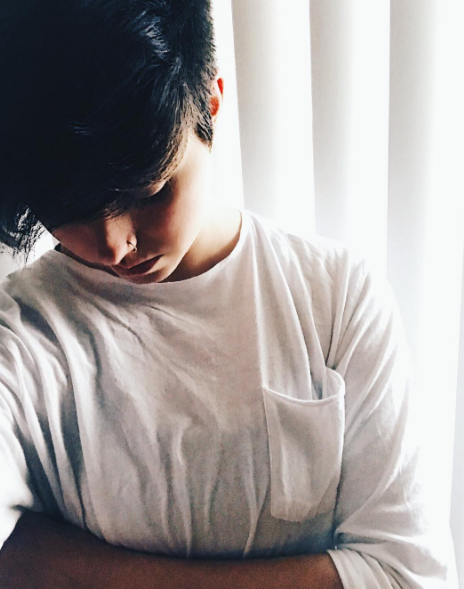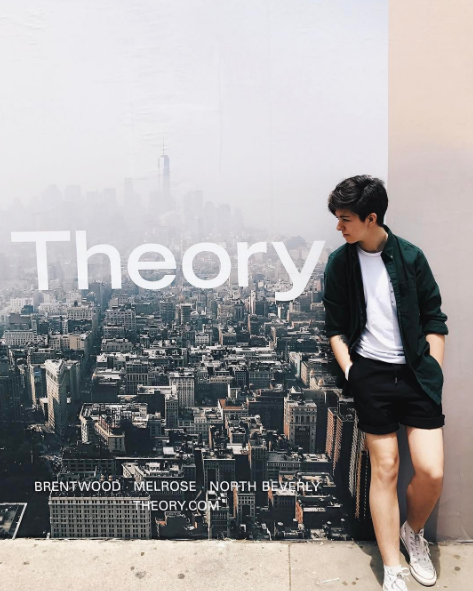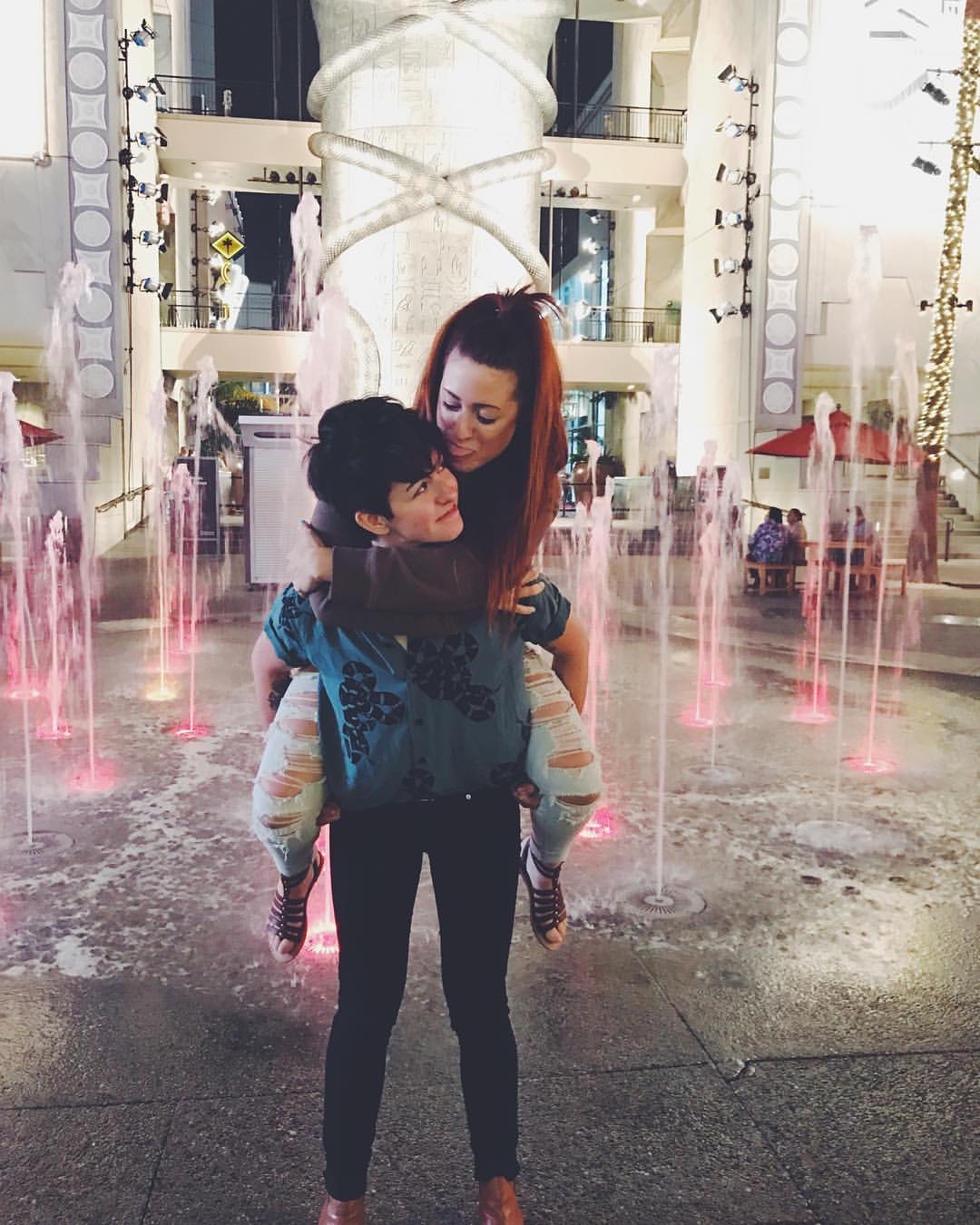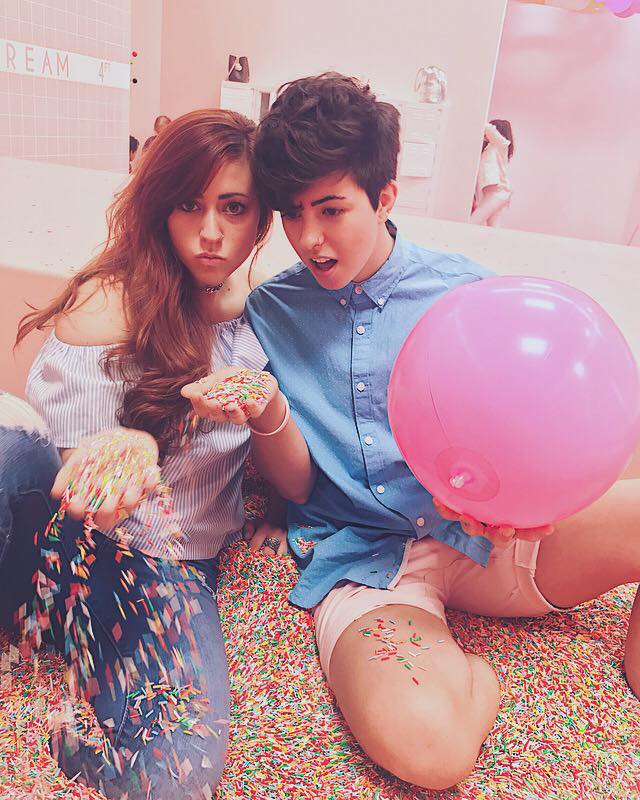THE OPINIONATED: FEATURES | The Purple Area With Arden
Our society tends to assign colors (amongst many other things) to genders -- pink for girls, and blue for boys -- but what happens when you fall somewhere in the middle? What happens when you find yourself in the purple area?
Meet Arden Noto. Up until a couple of months ago, I referred to them as my cousin Angelina. When I created The Opinionated: Features, they were the first person who came to mind to kick this series off. It's my hope that through sharing their story and perspective, you can come away with a better understanding of their truth and realize that things aren't as black and white (or in this case, blue and pink) as society would lead us to think.
Danielle: How would you personally define yourself?
Arden: Labels feel weird to me. There definitely used to be a time when they were really helpful in figuring out who I was, but I’ve reached a point in my life where they’ve become more restraining.
If I had to put terms to my identity, I would most likely just describe myself as queer in every way possible. I’m queer when it comes to sexuality and gender, so I would use a term like genderqueer or trans*non binary in reference to my gender identity. Both are fluid, however, so that might change at some point but for now that’s what feels comfortable!
D: I know pronouns are important. Which pronouns do you prefer? Why do you think pronouns are so important to gender non-conforming people?
A: My personal affirming pronouns are they/them/theirs and I think that one of the biggest reasons that pronouns are so important to gender non-conforming individuals is because it’s a gesture of validation and support - it’s just something simple that relays a message of acceptance and respect. No one would be comfortable with someone referring to them with pronouns that didn’t coincide with their gender identity, so adversely it helps non-binary folks feel more comfortable in the spaces that they're in when people are conscious of pronouns.
D: Finish this sentence: "Gender is ..."
A: F**king bullshit. It’s all fake and everyone's far too content with walking around acting like we didn’t make it all up. For example, I’m really tired of hearing that “boys will be boys” because boys will only be what we’re teaching them to be or “act like a lady,” because we still feel good about policing a woman’s every move. It’s social construct.
D: How much is gender a part of your identity? Do you think there's too much focus/emphasis on gender and gender roles in our society?
A: Because I identify as something that is inconsistent with what is considered “normal” or “correct” in our society, gender plays a pretty major part of my identity because it dictates how I navigate the world which, quite frankly, is a space that was built for people who exist outside the confines of a binary system. Of course there’s too much emphasis on gender and gender roles, if there wasn’t, then there wouldn’t be such a thing as gender non-conforming, would there? The fact that non-conforming is a term that exists shows just how much we expect people to act within their gender expectations.
D: What’s been your earliest memory of being gendered?
A: It’s hard to pinpoint the earliest memory I have of being gendered, but one that I always distinctly remember is being told by my dad that I wasn’t allowed to run around in my dress (which I didn’t even want to be wearing, by the way) because that’s not what “young ladies” did and it wasn’t polite.
D: How long have you felt like you were somewhere in between?
A: I think I’ve felt somewhere in between for most of my life, but I never had the language to really communicate that effectively to anyone, nor do I think it would’ve been received well. But I pushed back hard against the enforcement of gender roles when I was a little kid. When I was told that I couldn’t run in dresses, I questioned why I even had to be in a dress to begin with; it was a constant battle of being told that I couldn’t do something and then when I asked why, was told it was because I was a girl.
I can’t remember a time when that didn’t sit right with me, it’s just never something I agreed with. There are aspects of femininity that I like and still perform, but it’s on my own terms and only to the extent I feel comfortable with. But, for the most part, it’s never felt comfortable on me, especially in situations where I wasn’t given any choice.
D: You consider this your part 2 of coming out. Was it easier than the first time you came out about your sexuality? Or harder? How have your family and friends reacted?
A: I think it was easier in some ways, harder in others. Coming out about my sexuality was hands-down much more terrifying, but since then, I’ve had to come out over and over again to so many people that now the process is just something I’m used to. It’s taught me a lot about the kind of people that I want to have in my life and the ones who deserve to have me in theirs. If someone doesn’t accept me as I am, then that’s their problem - blood or water, it doesn’t matter, I don’t have to change in order to be deserving of their love. Learning this helped me a lot with my coming out part II. I wasn’t as scared that people wouldn’t accept me as I was when I came out as gay.
The part that was harder was the fear that no one would understand. As a blanket statement, most people today are pretty clear on what gay, lesbian, bi etc. is. but the general population’s literacy and understanding regarding gender identity is, to put it nicely, vastly lacking, so there’s the challenge of being the focus of a new term that people are just coming to hear about and having the responsibility of being the first model of non binary that they are exposed to.
People commonly react to new things with fear and dismissal and it’s scary to put yourself in a position for people to tell you that your identity isn’t real. That was pretty hard and scary. My friends have been overwhelmingly amazing with it— a lot of support and a surprising amount of people saying that it made sense, which is really reassuring to hear. My mom and sister and extended family have all been so great and are definitely putting in the effort to use my name and correct pronouns, even though it can be difficult at times because of muscle memory etc.
Interestingly enough, my mom was the most encouraging about my name change and agreed that my birth name couldn’t be more ill fitting for me. She’s so supportive and just stresses that she wants me to be me and that’s more than I could ever ask for from her. I’ve surrounded myself with an incredible circle of people, that was made especially clear to me after this coming out experience.
D: Who are some of your role models when it comes to your gender identity journey?
A: My friend Carter, who identifies as genderqueer as well, was a great role model for me when I began figuring things out and helped me break down a lot of false connotations I had about what it meant to identify as non-conforming. I try to present myself as confidently and non apologetically as they do. I was also lucky enough to get to know an incredible genderqueer artist and photographer, Kai, who I found representation from on social media and they answered my myriad of questions I had and was encouraging and unfathomably validating during the period in my life where that type of support was crucial.
D: What advice would you give other people on living their most authentic life and being true to themselves? What about people who are scared of what others might think of them?
A: You don’t need anyone’s permission to be yourself. I wrote something one time that I try to always remind myself of and it’s that : “I have oceans inside of me, but I was never obligated to teach you to swim in them,” which, in summation, just means that I believe I have worth and depth and I don’t need to convince anyone of that fact or try to prove that it’s true/explain how I work as a person. You don’t owe anyone an explanation about yourself, if they can’t come to see it on their own.
D: Is there anything you want people to know about you/your identity?
A: That I’m still just a person! A small human being who is trying to make my way in the world, same as everyone else and that my gender identity isn’t the only thing about me.
Follow Arden on Instagram here and share your comments below!
Know someone who we should interview for our next The Opinionated: Features?







